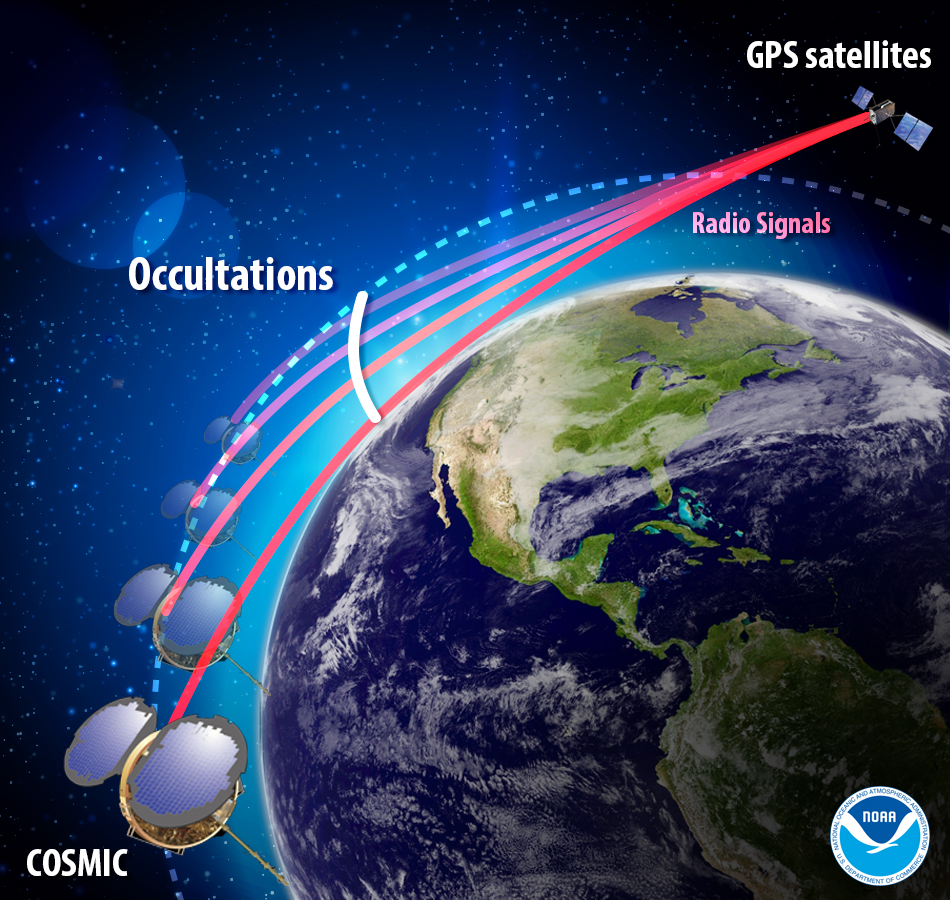NOAA Readies for COSMIC-2 Satellite Launch
The satellites, flying on the U.S. Air Force’s Space Test Program-2 mission, are known as the Constellation Observing System for Meteorology, Ionosphere and Climate (COSMIC-2). This mission is a partnership between the American Institute in Taiwan (AIT) and the Taipei Economic and Cultural Representative Office in the United States (TECRO) with NOAA and the Taiwan National Space Organization (NSPO), as designated representatives.
https://www.youtube.com/watch?v=zIDw4DyjR7o“This latest generation of COSMIC satellites will continue to build on the successes of the program,” said Secretary of Commerce Wilbur Ross. “The COSMIC satellites keeps scientists and forecasters informed of minute changes in the atmosphere and space, with this latest batch of satellites ensuring that this critical data is collected from the poles to the tropics.”
In Taiwan, COSMIC-2 is known as FORMOSAT-7. Once launched and in orbit, the COSMIC-2/FORMOSAT-7 satellites will be owned and operated by the authorities in Taiwan and will undergo early check-out, calibration and validation process for approximately seven months before their data are declared operational.
https://www.youtube.com/watch?v=qLEuCn8RT14“COSMIC-2, in concert with the infrared and microwave sounding instruments carried on polar-orbiting satellites operated by NOAA and its U.S. and international partners, will help provide a complete set of global data for use in NOAA’s operational weather prediction models,” said Neil Jacobs, Ph.D., acting NOAA administrator.
Each COSMIC-2 satellite, roughly the size of a standard kitchen oven, carries three instruments that detect electron density and other space weather information in the ionosphere, as well as atmospheric density, temperature, pressure and moisture. The collected data will be fed into NOAA’s sophisticated computer models used by forecasters to predict weather and climate and to monitor dynamic changes in Earth's ionosphere, leading to improved weather and solar forecasts.
COSMIC-2 will gather information about the vertical temperature and humidity of the atmosphere in the tropics, which holds most of the moisture that drives global weather patterns,” said Louis W. Uccellini, Ph.D., director, NOAA’s National Weather Service. “The high quality and large number of observations from the COSMIC-2 data stream will improve the accuracy of our weather forecast model outputs for our national and global areas of responsibility."

Unlike the first COSMIC mission, launched in 2006 with its satellites orbiting the Earth in nearly polar orbits, the COSMIC-2 satellites will orbit Earth near the equator, taking measurements of the tropics and subtropics, and monitoring the ionosphere for the effects of solar storms. Using a technique called radio occultation, the COSMIC-2 satellites will collect signals from the Global Navigation Satellite System, (including the U.S. Global Positioning System or GPS) that are “bent” as they travel through the Earth’s atmosphere. The bent signal gives scientists an indication of the temperature, pressure and moisture content of the atmosphere.
“The strength and determination of the partnership were critical in bringing COSMIC-2 to the launch pad,” said Steve Volz, Ph.D., assistant NOAA administrator for its Satellite and Information Service. “We’re looking forward to the positive impact COSMIC-2 data will have on weather and solar weather forecasts.”
Edited for WeatherNation by Meteorologist Mace Michaels